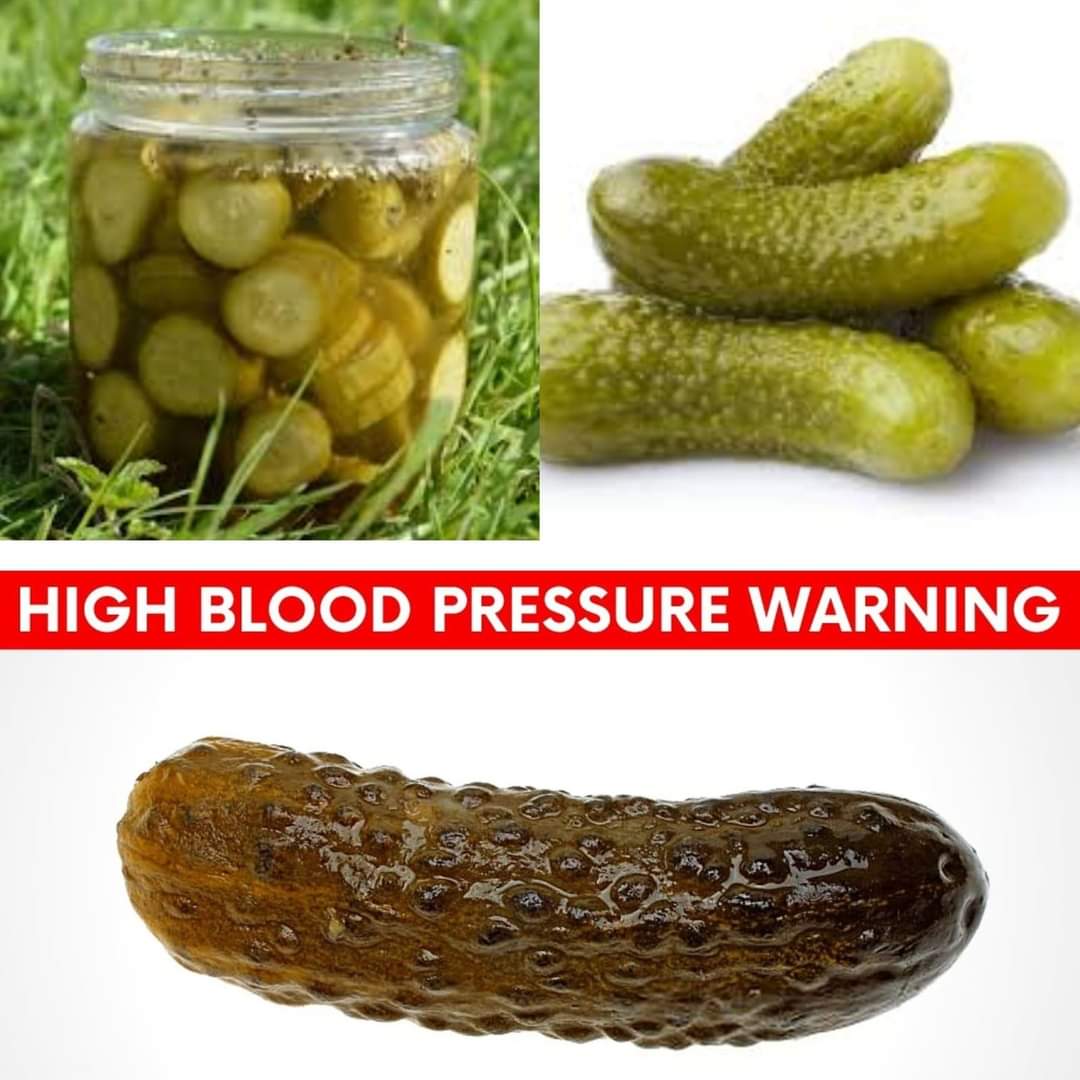High Blood Pressure Warning – Foods You Should Stop Eating Right Now (Pickles Included)
It’s critical to closely monitor your diet if you have high blood pressure. Some meals, even ones you would not think of, can cause your blood pressure to rise, which puts additional stress on your heart and arteries. One such item that many people are unaware might have an impact on blood pressure is pickles. Here’s why you should restrict your intake of pickles and other foods heavy in salt, as well as some effective blood pressure management techniques.
Why Pickles’ High Sodium Content Is Harmful for High Blood Pressure
Pickles are wonderful, but since they are brined to preserve them, they are usually high in salt (sodium). Your body retains more water when you consume sodium, which raises the amount of blood in your blood vessels. Your blood pressure rises as a result of the increased pressure this additional blood volume puts on your vessels. The salt in pickles may make it more difficult for those who currently manage high blood pressure (hypertension) to maintain control over their levels.
Boosts the Chance of Heart Issues
Consuming foods heavy in salt, such as pickles, on a regular basis might raise your risk of heart disease, strokes, and renal issues. Approximately 2,300 mg of salt should be consumed each day, however a few pickles may quickly exceed that amount.
Additional Foods to Steer Clear of for High Blood Pressure
Vegetables and Soups in Cans For preservation, canned vegetables and soups sometimes have significant salt content. It’s possible that even “low-sodium” varieties contain more salt than you think. Fresh or frozen veggies are preferable, as are handmade soups where you can regulate the salt content.
Meats that have been processed Hot dogs, bacon, sausages, and deli meats are high in preservatives and salt. These foods are especially bad for those who are trying to control their high blood pressure. Use fresh, lean meats like turkey or chicken if you need a protein boost.
Dinners from Frozen Foods Despite their convenience, frozen meals sometimes have high salt content to improve taste and prolong shelf life. Carefully read labels, attempt to restrict or stay away from them, and choose to eat home-cooked meals instead.
Salty Snacks Salt may be found in chips, crackers, pretzels, and even certain types of popcorn. A better method to satisfy cravings is to swap these foods out for fresh fruit, unsalted almonds, or vegetables with hummus.
Quick Dining Fast food is well known for having a lot of sugar, fat, and salt. Fried chicken, fries, and hamburgers all raise blood pressure. Limit your consumption of fast food, or choose for healthier choices like salads (be wary of high-sodium dressings) or grilled foods without additional sauces.
What You Can Do Instead
Consume fresh produce. Because they are naturally rich in potassium and low in sodium, fruits and vegetables may help control blood pressure. Citrus fruits, bananas, and leafy greens are very healthy.
Select Low-Sodium Substitutes If you like pickles, choose low-sodium varieties or make your own at home with less salt. Similarly, when purchasing snacks or canned products, seek for low-sodium choices.
Add spices and herbs for seasoning. Consider using vinegar, lemon juice, herbs, or spices to season your food rather than salt. Without having a detrimental effect on your blood pressure, these substitutes may improve taste.
Drink plenty of water. Keeping your blood pressure under control and eliminating extra salt from your body are two benefits of drinking plenty of water. Try to have 8–10 glasses per day, particularly after eating anything salty.
In conclusion
Avoiding foods heavy in sodium, such as pickles, is a fantastic place to start when it comes to managing high blood pressure. You may lower your blood pressure and strengthen your heart by consuming less processed and salty meals and more fresh and natural foods.
ADVERTISEMENT

